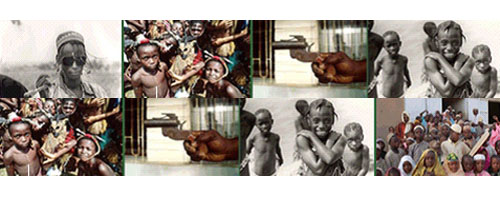10 myths on Violence in Nigeria

IFRA Masterclass
11th to 15th of December 2017
In Nigeria as in many other contexts, the aura of mystery surrounding violent phenomena shapes a conventional wisdom. This conventional wisdom englobes a series of widespread beliefs, commonly considered as accurate and referenced. If some of these beliefs effectively include elements of truth, others are, partially or totally, what one shall call “myths”.
What is a myth?
- A historical myth is a traditional story, especially one concerning the early history of a people or explaining a natural or social phenomenon, and typically involving supernatural beings or events.
- A contemporary myth is a widely held but false belief or idea.
The second meaning is the one that interests us here. Indeed, individuals and communities but also policy-makers, journalists, transnational corporations or opinion-leaders routinely take for granted assumptions, often conveyed by media and in a much broader way since the emergence of Internet. But most of the time, these assumptions can easily be refuted by empirical evidence.
Myths do not only obfuscate academic findings but they also mislead public opinions and unduly deteriorate the reputation of Nigeria in the world.
The Nigeria Watch project, which started in 2006 and document deadly violence in Nigeria through a careful reading of the Nigerian press, is a crucial tool to help debunking myths about violence in Nigeria and may provide leaders with alternative narratives. Therefore, from the 11th to the 15th of December, 2017 IFRA Nigeria will organise the Masterclass “10 myths on violence in Nigeria”. This masterclass will be supervised by the Nigeria Watch project coordinator: Professor Marc-Antoine Pérouse de Montclos, Political Scientist and specialist of Nigeria. It is intended to train students on identifying, analysing, deconstructing and, eventually, writing pieces about myths on violence in Nigeria. These endeavours will require engaging with the following questions among others: what are the main myths about violence in Nigeria? How do they appear? Why are they held as true? How can we combat them and provide alternative narratives based on reliable pieces of evidence?
The objective of the Masterclass is to produce a series of articles that will deconstruct the main myths on violence. The texts will be published as academic working papers and also compiled together to produce a booklet intended for a wider public (stakeholder, economic actors, media, NGOs, etc.).
The Masterclass is open to postgraduate students (masters and Phd) in the various fields of social sciences and humanities (history, anthropology, political science, etc). Please note that the organisation committee will not fund accommodation and travel expenses from participants based outside of Ibadan.
10 participants will be selected. Interested students are requested to submit their application to This email address is being protected from spambots. You need JavaScript enabled to view it. not later than Friday 24th of November. Applications must include ALL the following elements or will not be considered:
- Updated academic CV
- A one-page proposal (Font Time New Roman, Size 12) detailing the applicants’s reasons to attend the masterclass and how his/her profile is relevant.
- A one-page analysis of a common belief about violence in Nigeria that the applicant considers as a myth. This analysis should be documented and engage with the following questions: what is the myth? In what way? What are the available sources that invalidate this myth?

Social Media
Mailing List